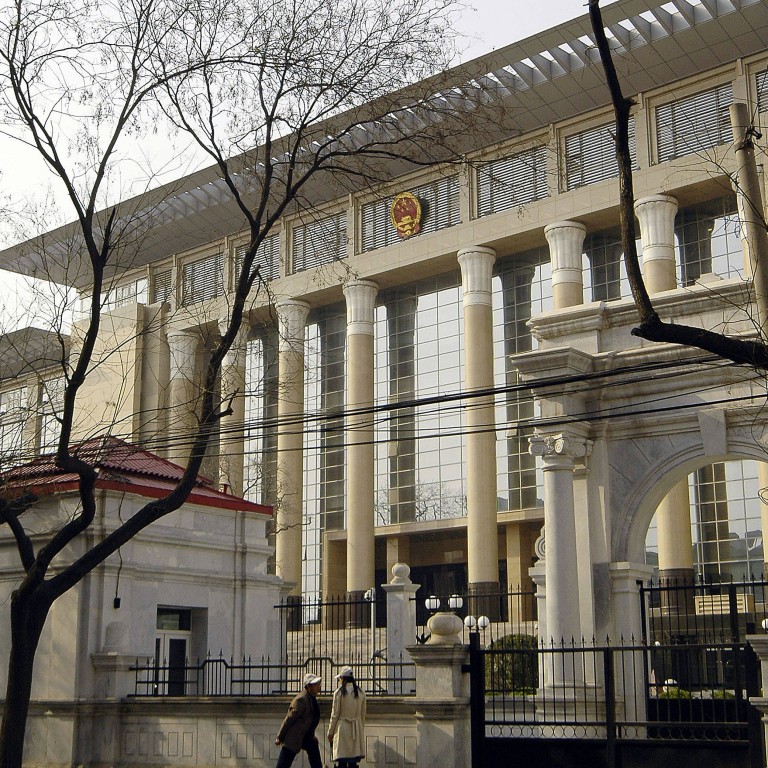
As China extends ‘global legal reach’, US should more actively engage to counter influence, top panel hears
- Witnesses paint fuller picture of Beijing building a ‘Chinese version of rule of law’ while emulating Western legal practices
- US urged to take more leading role in shaping international laws, including in space, technical standards and maritime rules
The US should take a more active role in countering China’s efforts to influence global legal standards, even if that involves engaging more with Beijing on the subject, witnesses told a top American congressional panel in Washington on Thursday.
“But if a case is critical to CCP power and control, fairness gets tossed out the window. That 10 per cent is lawfare,” he added, describing the use of a legal system to hurt opponents.
American companies often get caught in those cases of lawfare, Harris continued, and the US government should help them exit China, particularly those with manufacturing operations.
He believed the US should provide “loans and grants” to allow such companies to move their manufacturing stateside or to an American ally, apart from helping them navigate the complex process for doing so.
But Moritz Rudolf, a scholar at Yale Law School’s Paul Tsai China Centre, cautioned that it was in America’s interest “to work in the [international] system and not draw out of it looking for other countries which already share the same vision”.
Rudolf advocated a bilateral exchange of jurists to help the US get a clearer sense of China’s legal system, saying implementation of the law in China tended to diverge from what was on the books there.
US ambassador says next steps to improve relations are up to China
The goal of the hearing, as explained by its co-chair, USCC commissioner Carte Goodwin, was to assess “how the CCP views law as an instrument of its authoritarian power” both internationally and domestically. This, Goodwin said, was “crucial to managing US-China competition”.
China was trying to change the international system without undermining it, witnesses testified.
“The PRC acts to a remarkable degree within the system, trying to reform it from within, making it less Western and more Chinese,” said Rudolph, adding that “they know they can’t” displace the system.
And there are domains it has not actively undermined, witnesses said. In international space law, Beijing was in fact being “mostly constructive”, said Brian Weeden of the Washington-based Secure World Foundation.
Beijing was “changing the environment, not the rules themselves”, added Isaac Kardon of the Carnegie Endowment for International Peace.
US seeks to ‘de-risk’ relationship with China, national security adviser says
To counter what they described as Beijing’s increasing attempts to influence the global system, witnesses urged the US to take a more leading role in shaping international laws, including in space, technical standards and maritime rules, without excluding China.
US advisory panel signals support for screening investments in Chinese tech
In addition, the US needed to look at its own legal system, they said. Witnesses spoke of how American judges treated China without due scepticism and how American courts had been weaponised by the Chinese government to target their dissidents.
US judges were “uncomfortable with getting involved in cases that affect foreign policy”, said Diego Zambrano, a Stanford University law professor.
To counter Beijing’s efforts, the US should enact a federal statute on anti-strategic litigation against public participation to expedite the process for defendants to file to dismiss a case, he said.
Zambrano believed this would help remedy any financial or emotional harm arising from frivolous lawsuits out of Beijing.

